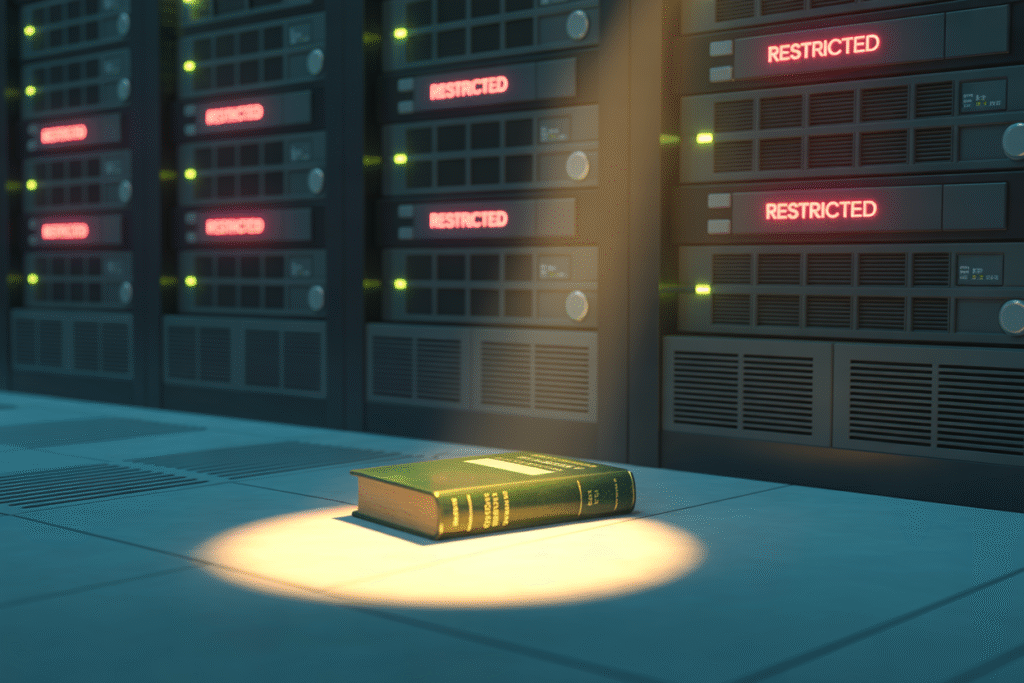Anthropic just admitted it quietly deletes chemical, biological, radiological and nuclear know-how from Claude’s training data. Critics call it safety; others call it censorship.
Imagine asking your favorite AI how the 1918 flu pandemic started and getting a polite shrug. That’s the future Anthropic is building—one where entire slices of human knowledge are pre-emptively erased to keep AI “safe.” The company’s new CBRN constitution is already live, and the debate is exploding. Is this responsible AI ethics or Silicon Valley playing Big Brother with your curiosity?
The Great Scrub: What Anthropic Actually Did
Last week Anthropic published a paper detailing how it filters out data on chemical, biological, radiological and nuclear weapons before Claude ever sees it. They call the process “constitution-guided refusal,” and it runs during pre-training, not after the model is built.
In plain English, the AI never learns certain facts in the first place. Anthropic claims everyday performance stays intact—Claude can still discuss general chemistry or biology—but anything weapon-adjacent hits a brick wall.
The company says the goal is simple: reduce AI risks by removing the raw material for misuse. If the model never knows how to synthesize sarin gas, it can’t accidentally teach someone else.
Yet the definition of “dangerous” is entirely in Anthropic’s hands. One researcher’s defense study is another censor’s red flag. Where exactly is the line, and who gets to draw it?
The Backlash: Free Speech vs. Safety Theater
Open-source advocates wasted no time calling the move corporate censorship. They argue that scrubbing data creates a sanitized version of reality, one where historical atrocities or legitimate scientific inquiry can’t even be discussed.
Think about it—could Claude explain the Tokyo subway attack if asked? Could it reference declassified Cold War documents? The worry is that safety becomes a blanket excuse to gatekeep knowledge.
On the flip side, AI safety researchers praise the approach as proactive governance. They point to real-world harms: extremist forums already trade in homemade bioweapon recipes. If AI can plug that leak at the source, why not?
The tension boils down to a single question: Should a private company decide what humanity is allowed to know? Right now, the answer is yes—because no regulator has stepped in to say otherwise.
Ripple Effects: How This Could Reshape AI Ethics Globally
Anthropic isn’t operating in a vacuum. The EU’s AI Act is looming, and U.S. lawmakers are drafting bills that could mandate similar filters. If Anthropic’s method becomes the gold standard, every major lab might have to build its own CBRN constitution.
That raises a thorny supply-chain issue. Training data is scraped worldwide, often without consent. Will Indian news sites or Russian journals be scrubbed next if they mention nuclear physics? The precedent is being set today.
Smaller open-source projects could face an impossible choice: adopt the filters and lose transparency, or skip them and risk legal liability. Either way, innovation may skew toward companies rich enough to police their own datasets.
Meanwhile, authoritarian regimes are watching closely. If Western firms normalize pre-emptive censorship, it becomes easier for governments to demand broader topic bans—think Tiananmen Square or Crimea—under the same safety banner.
Your Move: Three Ways to Stay Informed and Vocal
Feeling uneasy? Good. The best antidote to silent censorship is noisy curiosity. Here’s how you can push back and stay ahead of the curve.
1. Diversify your sources. Don’t rely on a single AI for answers. Cross-check with academic journals, public databases and expert communities.
2. Support transparency initiatives. Groups like the Mozilla Foundation and the Electronic Frontier Foundation are lobbying for open audits of training data. A small donation or social share helps.
3. Engage policymakers. Most legislators still think “AI alignment” is a car feature. A concise email explaining why open inquiry matters can tip the scales when bills come to vote.
The future of knowledge isn’t a spectator sport. If we want AI ethics to serve humanity—not just shareholders—we have to speak up before the next dataset gets scrubbed. Ready to join the conversation? Drop your thoughts below or tag us with #OpenModels.


